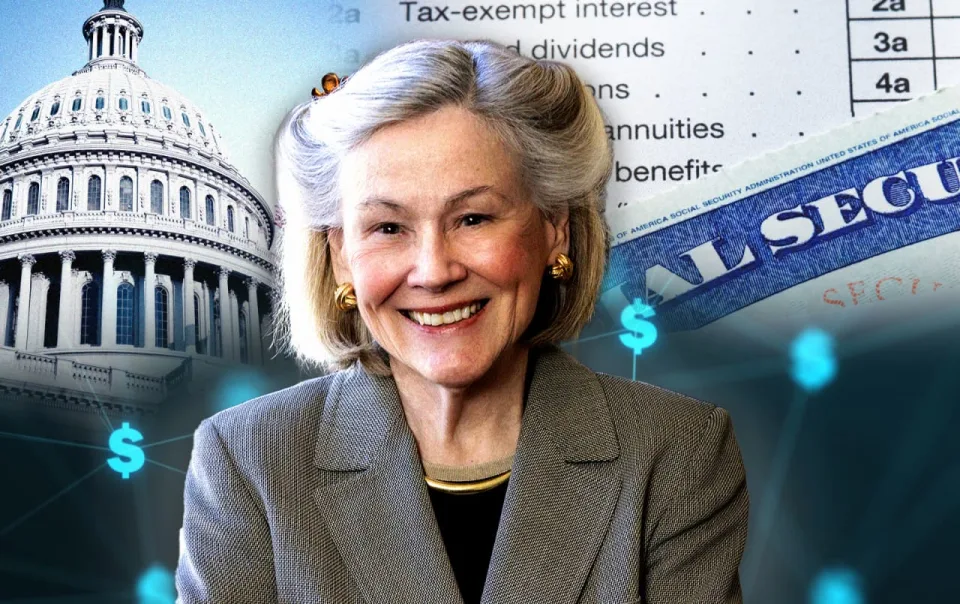
Economist Alicia Munnell, one of the nation’s leading experts on retirement, has some advice that may seem counterintuitive: The key to a successful retirement, she says, is not to retire.
Munnell, 82, has followed her own advice and postponed her retirement for decades. At the end of December, the founding director of the Center for Retirement Research at Boston College will step down after more than two decades at the helm. She will remain with the center as a senior adviser.
“Working longer is the answer. I get a lot of flak about that position — that not everyone can do it,” said Munnell, who also writes the Encore column for MarketWatch (and will continue to do so when she steps down from her director role). “I know people have health issues. I know people have physical jobs they can’t continue. But for a large portion of the population, work as long as you can. Get larger Social Security payments, have a smaller number of years to support yourself.”
The average retirement age in the U.S. is 62, according to a 2024 MassMutual survey. And about six in 10 retirees left the workforce before they planned to, according to the Transamerica Center for Retirement Studies.
Munnell’s other advice may be simple, but it’s powerful, especially for young people just starting out in the workforce who have decades of potential compound investment growth in their future. The best moves they can make, she said, are to start saving for retirement as early as possible, to save enough to at least get a full matching contribution from their employer, and to plan for a long career.
“Plan to work longer, and put yourself in a position where you can work longer. Do all this, and you’ll be in pretty good shape financially,” Munnell said.
Prior to working at the Center for Retirement Research, Munnell served as an assistant secretary at the Treasury Department under President Bill Clinton and spent 20 years at the Federal Reserve Bank of Boston, where she became a senior vice president and director of research.
“I still feel at the top of my game. People aren’t rolling their eyes at me when I talk. But I feel like it’s an appropriate time to retire,” Munnell said. “My kids don’t believe it. They said, ‘We thought you’d work forever.’ I say, ‘I did.’”
Munnell said she has no major professional regrets.
“I’m not saying the retirement system is perfect, but I said everything I wanted to say when I said it — whether it was well received or not,” she said.
She’s not sure how she’ll like her new role as an adviser, noting that it will feel different after being in charge of the center since 1998.
“I’m not sure I’ll feel OK after being in charge. I like being in charge. But I have a frivolous side, too,” Munnell said. “I’ve just finished 25 years of ‘Law & Order.’ I like bridge. I like to cook. I have no idea what retirement will feel like, though.”
Munnell is retiring at a time when the U.S. population is living longer, Social Security faces insolvency and possible benefit cuts in 2035, and 56% of people lack access to a retirement plan through their workplace, according to the Economic Innovation Group.
Still, she doesn’t see the country as facing a retirement crisis, per se.
“I’m not big on the word ‘crisis,’” she said.
Based on her research, in good economic times, 40% of retirees can’t maintain their standard of living in retirement, while in bad economic times, that figure rises to 50%.
Munnell said the biggest improvement in economic security would be to have universal plans that would give all workers access to retirement-savings opportunities.
Personally, she said the best financial move she ever made was one of the simplest: making a budget.
“I thought I would retire at 65. We made a budget and figured out we couldn’t keep our big house on [Boston’s] Beacon Hill. So we downsized. I ended up working until my 80s, so we could have kept the house, but it was still a good move,” she said.
“I keep too much money in just a regular 401(k),” she said. “I should have switched to a Roth 20 years ago. I look like a rich person on paper, which means I pay high premiums in Medicare and a lot in taxes.”
Her other regret was following the advice of a colleague to take her pension early when she left the Federal Reserve in her 50s.
“They said I would be smarter in investing it myself than the pension fund, so I should take it early and invest it myself. But I wasn’t smart and I didn’t invest it, and I ended up spending it and missing out on a bigger pension later,” Munnell said.
Still, looking back on a long career in which she said the biggest change was the shift from pensions, or defined-benefit plans, to employee-funded retirement plans like 401(k)s, Munnell feels content about her contribution to the industry.
“I have minor regrets,” she said. “But I loved what I did. I would have done it if I was paid nothing.”